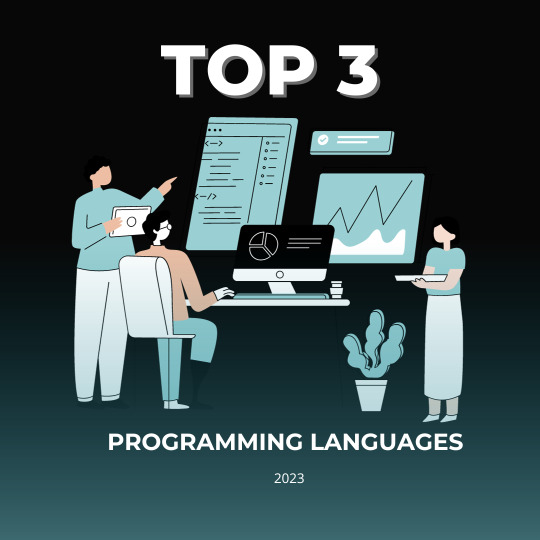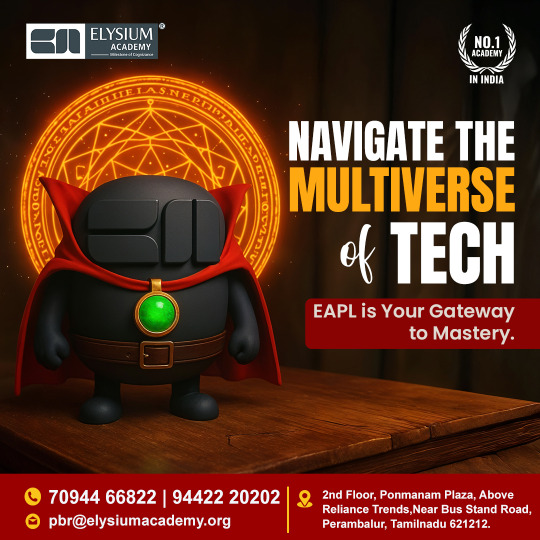#Latest Java Trends
Explore tagged Tumblr posts
Text
Latest Java Trends You Should Know in 2024

Join the CodeSquadz Java training program to learn Java from industry experts and master its concepts. Its growth puts the language in high demand, making expertise in the current Java trends essential for both freshers and experienced developers.
#java programming language#Latest Java Trends#features of java in codesquadz#java scope in future#Java training program
0 notes
Text
India’s Tech Sector to Create 1.2 Lakh AI Job Vacancies in Two Years
India’s technology sector is set to experience a hiring boom with job vacancies for artificial intelligence (AI) roles projected to reach 1.2 lakh over the next two years. As the demand for AI latest technology increases across industries, companies are rapidly adopting advanced tools to stay competitive. These new roles will span across tech services, Global Capability Centres (GCCs), pure-play AI and analytics firms, startups, and product companies.
Following a slowdown in tech hiring, the focus is shifting toward the development of AI. Market analysts estimate that Indian companies are moving beyond Proof of Concept (PoC) and deploying large-scale AI systems, generating high demand for roles such as AI researchers, product managers, and data application specialists. “We foresee about 120,000 to 150,000 AI-related job vacancies emerging as Indian IT services ramp up AI applications,” noted Gaurav Vasu, CEO of UnearthInsight.
India currently has 4 lakh AI professionals, but the gap between demand and supply is widening, with job requirements expected to reach 6 lakh soon. By 2026, experts predict the number of AI specialists required will hit 1 million, reflecting the deep integration of AI latest technology into industries like healthcare, e-commerce, and manufacturing.
The transition to AI-driven operations is also altering the nature of job vacancies. Unlike traditional software engineering roles, artificial intelligence positions focus on advanced algorithms, automation, and machine learning. Companies are recruiting experts in fields like deep learning, robotics, and natural language processing to meet the growing demand for innovative AI solutions. The development of AI has led to the rise of specialised roles such as Machine Learning Engineers, Data Scientists, and Prompt Engineers.
Krishna Vij, Vice President of TeamLease Digital, remarked that new AI roles are evolving across industries as AI latest technology becomes an essential tool for product development, operations, and consulting. “We expect close to 120,000 new job vacancies in AI across different sectors like finance, healthcare, and autonomous systems,” he said.
AI professionals also enjoy higher compensation compared to their traditional tech counterparts. Around 80% of AI-related job vacancies offer premium salaries, with packages 40%-80% higher due to the limited pool of trained talent. “The low availability of experienced AI professionals ensures that artificial intelligence roles will command attractive pay for the next 2-3 years,” noted Krishna Gautam, Business Head of Xpheno.
Candidates aiming for AI roles need to master key competencies. Proficiency in programming languages like Python, R, Java, or C++ is essential, along with knowledge of AI latest technology such as large language models (LLMs). Expertise in statistics, machine learning algorithms, and cloud computing platforms adds value to applicants. As companies adopt AI latest technology across domains, candidates with critical thinking and AI adaptability will stay ahead so it is important to learn and stay updated with AI informative blogs & news.
Although companies are prioritising experienced professionals for mid-to-senior roles, entry-level job vacancies are also rising, driven by the increased use of AI in enterprises. Bootcamps, certifications, and academic programs are helping freshers gain the skills required for artificial intelligence roles. As AI development progresses, entry-level roles are expected to expand in the near future. AI is reshaping the industries providing automation & the techniques to save time , to increase work efficiency.
India’s tech sector is entering a transformative phase, with a surge in job vacancies linked to AI latest technology adoption. The next two years will witness fierce competition for AI talent, reshaping hiring trends across industries and unlocking new growth opportunities in artificial intelligence. Both startups and established companies are racing to secure talent, fostering a dynamic landscape where artificial intelligence expertise will be help in innovation and growth. AI will help organizations and businesses to actively participate in new trends.
#aionlinemoney.com
2 notes
·
View notes
Text
The early morning air at Hindhede Nature Park in central Singapore is filled with bird calls. But one birdsong clearly stands out from the rest—the long, gurgling call of the straw-headed bulbul (Pycnonotus zeylanicus). “Whenever I hear its resonant, bubbly song, the forest seems to erupt with life,” says conservationist Ho Hua Chew, one of the first two people to study the species in Singapore.
To the bird’s detriment, its melodic call has made it one of the most sought-after species in the Asian songbird trade. Each year, thousands of birds with pleasing calls are taken from Southeast Asia’s forests to be kept at home for entertainment or to participate in singing competitions, leading to a rapid decline in their wild populations. More than 40 species are severely threatened by the songbird trade.
The straw-headed bulbul’s population across its range in Southeast Asia has been decimated to meet this demand. The International Union for Conservation of Nature (IUCN) currently lists the bird as critically endangered. The species is believed to be already extinct in Thailand and likely Myanmar, as well as likely extinct on the Indonesian islands of Java and Sumatra. The populations in peninsular Malaysia and Indonesian Borneo are also declining rapidly.
The only place to buck the straw-headed bulbul’s declining trend is the city-state of Singapore. The highly urbanized island nation has emerged as an unexpected haven for the species, where the bird’s population is slowly, but steadily, increasing, thanks to over three decades of conservation actions.
Based on the latest estimate, published in 2020, Singapore is home to about 600 straw-headed bulbuls. This constitutes between 23 and 57 percent of the global population of the species, based on the 2018 BirdLife International assessment of fewer than 2,499 individuals. Within the city-state, the straw-headed bulbul population is spread across the 274-square-mile main island, as well as on the 4-square-mile offshore island of Pulau Ubin, where about half of the species’ local population resides. This makes the conservation of Pulau Ubin—a granite quarrying site in the 1970s that is now a nature area—particularly crucial for the survival of the species.
The effort to protect the straw-headed bulbul began more than 30 years ago. The Bird Group of the conservation nonprofit Nature Society Singapore, of which Ho has been an active member since the mid-1980s, led the campaign to protect Pulau Ubin and a few zones on the main island inhabited by the species. In 1990, the society published the Master Plan for the Conservation of Nature in Singapore, which highlighted the need for the conservation of these areas.
Simultaneously, the society campaigned via newspapers and other mass media channels to create public awareness about Singapore’s biodiversity. These advocacy initiatives bore fruit when Pulau Ubin was designated a Nature Area by the authorities in 1993.
Around the same time, an attempt was made by the Nature Society Singapore in partnership with other local organizations, to document all the plant and animal species of the city-state, in the form of the Singapore Red Data Book. The first edition of this book, published in 1994, listed the straw-headed bulbul as “vulnerable,” meaning the population had declined 30 percent or more in over three generations or ten years. According to 2001 estimates, about 76 to 93 of the birds lived on the main island, while the population size on Pulau Ubin was estimated to be at least 64 adult individuals. Continued threats to the species in the form of habitat loss and degradation necessitated its status to be uplisted to “endangered,” in the Red Data Book’s second edition published in 2008, indicative of a population decline of 50 percent or more over three generations or ten years.
Ho’s earliest sighting of the straw-headed bulbul was in 1987 at Pulau Ubin. As part of his master’s thesis, submitted in 2001, Ho studied the Pulau Ubin population and observed something interesting about the bird’s behavior. “It’s a forest edge species,” he says. “It prefers the edges of its habitat rather than the interior.”
This finding provided a ray of hope for the bird’s conservation, as many of Singapore’s forested areas were already fragmented and degraded due to widespread urbanization. “Any effort to conserve the bird does not need an extensive forest area to be set aside for them,” Ho says. “It’s possible for the species to survive in proximity to an urbanized area.” However, too much fragmentation can be harmful, as it deprives the birds of food sources, nesting sites and other resources necessary for their survival.
Unlike in other range countries, the high awareness levels in Singapore, coupled with strict environmental laws, such as the Endangered Species (Import and Export) Act of 2006, means that poaching, trapping and trading of the straw-headed bulbul has not been a major issue there. More habitats of the species on the main island, such as the mangroves of Mandai and Khatib Bongsu, are also being granted protection.
Following three decades of advocacy and awareness programs, in May 2019, the Bird Group of the Nature Society Singapore, together with BirdLife International, organized the very first workshop for the conservation of the straw-headed bulbul. Participants—including the National Parks Board, which is responsible for managing the city’s wildlife and biodiversity—sat together to share existing knowledge and identify the conservation measures required to protect the species in Singapore.
The workshop led to the creation in 2021 of the Straw-Headed Bulbul Working Group, co-led by the National Parks Board and the Nature Society Singapore, and which also includes government agencies, local and international conservation nonprofits, and universities. After two years of consultations and discussions, the working group released the National Species Action Plan, a five-year project. “The plan aims to ensure that the species continues to thrive in Singapore,” says Sophianne Araib, the group director at the National Biodiversity Center of the National Parks Board.
The plan focuses on improving the monitoring and observation of the species, documenting the genetic diversity of the local population, creating awareness about conserving the bird, and working with urban planning authorities to protect habitat. It also intends to monitor the bird shops and bird farms to ensure no straw-headed bulbuls are commercially imported into Singapore.
Ho, who was not directly involved with the Species Action Plan, is enthused by its launch. “It’s a major move by the government to conserve the bird not just in Singapore, but also globally,” he says. Ho believes that if the measures outlined in the Species Action Plan are successful, then straw-headed bulbuls from Singapore could possibly help revive the population in areas where the bird is now either extinct or close to extinction.
In another encouraging development for the conservation of the straw-headed bulbul, in November 2023, the species was added to Appendix I of the Convention on International Trade in Endangered Species of Wild Fauna and Flora, a treaty signed by 184 parties. The petition to add the bird to Appendix I was filed jointly by Singapore, Malaysia and the United States. This appendix lists the most endangered plant and animal species, and being added to it means that any international trade in the bird is prohibited, except for noncommercial purposes like scientific research. This development, Araib says, “reflects Singapore’s commitment and collaboration with regional and international partners in efforts to tackle the global issue of illegal wildlife trade.”
Thanks to the conservation measures spearheaded by this enterprising city-state and its dedicated conservationists, the fate of the species is a bit more secure. “Earlier we could only see the bird in Pulau Ubin or certain parts of Singapore like the Central Catchment Area,” says avid birder and Nature Society Singapore volunteer Betty Shaw. “More recently, when we venture to other parts of the [main] island, we hear the straw-headed bulbul in areas where we really didn’t expect to hear them.”
4 notes
·
View notes
Text
From Beginner to Pro: Dominate Automated Testing with Our Selenium Course
Welcome to our comprehensive Selenium course designed to help individuals from all backgrounds, whether novice or experienced, enhance their automated testing skills and become proficient in Selenium. In this article, we will delve into the world of Selenium, an open-source automated testing framework that has revolutionized software testing. With our course, we aim to empower aspiring professionals with the knowledge and techniques necessary to excel in the field of automated testing.

Why Choose Selenium?
Selenium offers a wide array of features and capabilities that make it the go-to choice for automated testing in the IT industry.
It allows testers to write test scripts in multiple programming languages, including Java, Python, C#, and more, ensuring flexibility and compatibility with various project requirements.
Selenium’s compatibility with different web browsers such as Chrome, Firefox, Safari, and Internet Explorer makes it a versatile choice for testing web applications.
The ability to leverage Selenium WebDriver, which provides a simple and powerful API, allows for seamless interaction with web elements, making automating tasks easier than ever before.
Selenium’s Key Components:
Selenium IDE:
Selenium Integrated Development Environment (IDE) is a Firefox plugin primarily used for recording and playing back test cases. It offers a user-friendly interface, allowing even non-programmers to create basic tests effortlessly.
Although Selenium IDE is a valuable tool for beginners, our course primarily focuses on Selenium WebDriver due to its advanced capabilities and wider scope.
Selenium WebDriver:
Selenium WebDriver is the most critical component of the Selenium framework. It provides a programming interface to interact with web elements and perform actions programmatically.
WebDriver’s functionality extends beyond just browser automation; it also enables testers to handle alerts, pop-ups, frames, and handle various other web application interactions.
Our Selenium course places significant emphasis on WebDriver, equipping learners with the skills to automate complex test scenarios efficiently.
Selenium Grid:
Selenium Grid empowers testers by allowing them to execute tests on multiple machines and browsers simultaneously, making it an essential component for testing scalability and cross-browser compatibility.
Through our Selenium course, you’ll gain a deep understanding of Selenium Grid and learn how to harness its capabilities effectively.

The Benefits of Our Selenium Course
Comprehensive Curriculum: Our course is designed to cover everything from the fundamentals of automated testing to advanced techniques in Selenium, ensuring learners receive a well-rounded education.
Hands-on Experience: Practical exercises and real-world examples are incorporated to provide learners with the opportunity to apply their knowledge in a realistic setting.
Expert Instruction: You’ll be guided by experienced instructors who have a profound understanding of Selenium and its application in the industry, ensuring you receive the best possible education.
Flexibility: Our course offers flexible learning options, allowing you to study at your own pace and convenience, ensuring a stress-free learning experience.
Industry Recognition: Completion of our Selenium course will provide you with a valuable certification recognized by employers worldwide, enhancing your career prospects within the IT industry.
Who Should Enroll?
Novice Testers: If you’re new to the world of automated testing and aspire to become proficient in Selenium, our course is designed specifically for you. We’ll lay a strong foundation and gradually guide you towards becoming a pro in Selenium automation.
Experienced Testers: Even if you already have experience in automated testing, our course will help you enhance your skills and keep up with the latest trends and best practices in Selenium.
IT Professionals: Individuals working in the IT industry, such as developers or quality assurance engineers, who want to broaden their skillset and optimize their testing processes, will greatly benefit from our Selenium course.
In conclusion, our Selenium course is a one-stop solution for individuals seeking to dominate automated testing and excel in their careers. With a comprehensive curriculum, hands-on experience, expert instruction, and industry recognition, you’ll be well-prepared to tackle any automated testing challenges that come your way. Make the smart choice and enroll in our Selenium course at ACTE Technologies today to unlock your full potential in the world of software testing.
7 notes
·
View notes
Text
Java Learning Roadmap: From Basics to Mastery
Embarking on a Java learning journey from the comfort of your home offers unparalleled flexibility and convenience. Whether your aspirations lie in web development, Android app creation, or backend coding, Java serves as a robust foundation.

This comprehensive guide outlines a step-by-step approach to help beginners effectively grasp Java concepts and skills from the comfort of their own space.
1. Establish Clear Learning Objectives: Prior to diving into Java learning, take a moment to define your goals. Determine what you aim to achieve with your Java proficiency, whether it's gaining foundational knowledge, tackling projects, or pursuing a career in software development.
2. Select High-Quality Learning Resources: Choose your learning materials wisely. Opt for reputable online platforms such as Udemy, Coursera, or Codecademy that offer well-structured Java courses tailored to beginners. Supplement your learning with books, video tutorials, and interactive exercises to enhance comprehension.
3. Start with Fundamental Concepts: Begin your Java journey by focusing on fundamental principles. Familiarize yourself with core concepts like variables, data types, loops, conditionals, and object-oriented programming basics. Online tutorials and interactive exercises serve as invaluable resources for grasping these foundational elements.
4. Cultivate Regular Practice Habits: Consistent practice is key to mastering Java. Allocate dedicated time each day to code, solve programming challenges, and engage in project work. Platforms like LeetCode, HackerRank, and CodeSignal provide a plethora of coding challenges to hone your skills and build confidence.
5. Engage in Project Development: Apply your newfound knowledge by embarking on real-world projects. Start with simple tasks, such as creating a calculator, a to-do list app, or a basic game. As you grow more confident, tackle more complex projects that align with your learning objectives and interests.

6. Connect with the Java Community: Join online forums, discussion groups, and social media communities to interact with fellow Java enthusiasts and experts. Platforms like Stack Overflow, Reddit, and GitHub offer invaluable opportunities to seek advice, share knowledge, and gain insights from experienced developers.
7. Embrace Constructive Feedback: Don't shy away from seeking feedback on your code and projects. Embrace constructive criticism as a catalyst for growth and improvement. Participate in code reviews, collaborate with peers, and leverage online resources to continuously refine your Java skills.
8. Stay Abreast of Developments: Java is a dynamic language with frequent updates and advancements. Stay informed about the latest trends, tools, and technologies in the Java ecosystem by following industry blogs, attending webinars, and exploring new frameworks and libraries.
9. Explore Advanced Topics: Once you've mastered the basics, delve into more advanced Java topics such as multithreading, networking, and database connectivity. Advanced Java courses, tutorials, and books offer deeper insights into these complex concepts, enabling you to expand your skill set further.
10. Build a Stellar Portfolio: As your Java proficiency grows, assemble a portfolio to showcase your projects and achievements. A well-curated portfolio serves as a compelling demonstration of your skills and capabilities to potential employers or clients. Highlight your standout projects, provide detailed descriptions, and showcase your problem-solving prowess to make a lasting impression.
Conclusion: Learning Java from home is an enriching journey that empowers individuals to unlock countless opportunities in software development. By setting clear goals, leveraging quality resources, practicing consistently, and engaging with the Java community, you can confidently master this versatile programming language and chart a successful career path in technology. Remember, dedication, perseverance, and a genuine passion for learning are the driving forces behind your Java learning journey's success.
#technology#java#javaprogramming#javascript#computerscience#programming#developer#java course#java training#java training course
2 notes
·
View notes
Text
Mastering Java: Your Path to Expertise at K-Tech Infotech

In the realm of programming languages, Java Course stands tall as a cornerstone of software development. Its versatility, reliability, and widespread use across industries make it a must-know for aspiring developers and seasoned professionals alike. At K-Tech Infotech, we’re excited to launch our comprehensive Java Course, designed to equip you with the skills and knowledge needed to thrive in the ever-evolving tech landscape.
Unveiling Our Java Course
Our Java Course isn’t just another tutorial series; it’s a holistic learning experience meticulously crafted to cater to beginners and advanced learners. Here’s a glimpse of what makes our course stand out:
1. Structured Curriculum
Foundations of Java: Dive into the basics, from syntax and data types to object-oriented programming principles.
Advanced Concepts: Explore multithreading, collections, generics, and more, delving into the intricacies of Java development.
Project-Based Learning: Apply your knowledge through hands-on projects, solidifying your skills and boosting your portfolio.
2. Expert Guidance
Our instructors are industry experts with a passion for teaching. Benefit from their wealth of experience as they guide you through complex concepts, offer practical insights, and mentor you every step of the way.
3. Flexibility and Support
We understand the importance of flexibility in learning. Our course is designed to fit into your schedule, with on-demand lessons and resources. Moreover, our support team is always available to assist you, ensuring a smooth learning journey.
4. Real-world Applications
Java isn’t just about theory; it’s about building real applications. Our course emphasizes practical application, empowering you to develop solutions that mirror real-world scenarios.
Why Learn Java with Us?
Industry Relevance: Java remains in high demand across various sectors, ensuring ample career opportunities.
Career Growth: Mastering Java opens doors to roles in software development, mobile app creation, web development, and more.
Community Engagement: Join a vibrant community of learners, collaborate on projects, and stay updated with the latest industry trends.
Ready to Embark on Your Java Journey?
Whether you’re an aspiring developer or a professional seeking to expand your skill set, our Java Course at K-Tech Infotech is the launchpad you need. Take the first step towards mastering Java Courseand unlock a world of opportunities in the tech sphere.
Enroll today and step into the exciting realm of Java Course development with K-Tech Infotech!
To learn more or enroll in our Java Course, visit https://k-techinfotech.business.site
Stay tuned for more updates, insights, and tech expertise here at K-Tech Infotech!
3 notes
·
View notes
Text

The popularity of programming languages can change over time due to various factors like technological advancements, industry trends, and community preferences.
However, as of my last update, some of the widely used programming languages included:
Python: Python has been consistently popular due to its versatility, ease of learning, and extensive libraries. It's commonly used in web development, data analysis, artificial intelligence, and scientific computing. JavaScript: JavaScript remains essential for web development, both on the front-end and back-end. With the rise of Node.js, it's also used for server-side development. It's likely to continue its importance in 2023. Java or C++: These languages have a long history and continue to be relevant, especially in areas like enterprise software, mobile app development (Java for Android), and game development (C++ in game engines like Unreal Engine). The popularity of languages can vary depending on your specific area of interest or industry, so it's essential to stay updated with the latest trends and developments in the programming world.
2 notes
·
View notes
Text

Web App vs. Website vs. Mobile App: Understanding the Differences
In today's digital age, the choice between a web app, website, or mobile app can significantly impact the success of your online presence. Understanding the differences between these options is essential for making informed decisions about your project. In this article, we'll break down the distinctions and explore how ManiWebDev can help you navigate this digital landscape.
Website 🌐
Websites are the digital storefronts of the internet. They primarily serve informational and static content, making them ideal for sharing knowledge, establishing an online presence, or showcasing your business. Key characteristics include:
📚 Primarily informational and static.
🌍 Accessed via web browsers on various devices.
💻 Built with web technologies like HTML, CSS, and JavaScript.
🚀 Examples: Blogs, news sites, company homepages.
Web App 🚀
Web applications, or web apps, are dynamic and interactive platforms accessed through web browsers. They go beyond static content, offering functionalities such as user interactivity, data processing, and real-time updates. Key characteristics include:
🔄 Interactive and dynamic web-based applications.
🌐 Accessed through web browsers.
🛠️ Built with web technologies and often backend technologies.
📊 Examples: Online email clients (e.g., Gmail), project management tools (e.g., Trello).
Mobile App 📱
Mobile applications, or mobile apps, are software programs designed specifically for mobile devices. Users download and install them from app stores like iOS's App Store or Android's Google Play Store. Key characteristics include:
📲 Software applications designed for mobile devices.
📥 Downloaded and installed from app stores (iOS, Android).
🛠️ Developed with platform-specific languages (e.g., Swift, Java).
🎮 Examples: Games (e.g., Angry Birds), social media apps (e.g., Instagram), navigation apps (e.g., Google Maps).
Choosing the Right Solution
The decision between a website, web app, or mobile app depends on your project's goals, target audience, and functionality requirements. It's essential to assess your unique needs and work with professionals who can guide you through the process.
How ManiWebDev Can Help
ManiWebDev is your partner in navigating the digital world. we specialize in creating captivating web experiences, dynamic mobile applications, and feature-rich web apps. Our expertise includes a wide range of web technologies, including HTML, CSS, JavaScript, React, Node.js, and more.
Here's how we can assist you:
Custom Development: We tailor solutions to match your project's specific requirements, whether it's a website, web app, or mobile app.
User-Centric Approach: We prioritize user experience, ensuring that your digital platform is user-friendly and engaging.
Cutting-Edge Technology: Our team stays at the forefront of emerging technologies and industry trends, guaranteeing that your project benefits from the latest advancements.
Comprehensive Services: From design to deployment and maintenance, we provide end-to-end services to bring your digital aspirations to life.
Conclusion
Understanding the differences between websites, web apps, and mobile apps is crucial for making informed decisions about your online presence. ManiWebDev is here to guide you through this journey, offering custom solutions tailored to your needs. Whether you're looking to build a website, a dynamic web app, or a mobile app, we have the expertise to bring your vision to reality. Reach out to us today and embark on a journey to enhance your digital presence.
If you have any questions or would like to discuss your project further, don't hesitate to contact us. Your success in the digital world is our priority!
2 notes
·
View notes
Text
Mobile Application Development Company in Patna
Mobile application development services encompass the process of creating and designing software applications for mobile devices such as smartphones and tablets. These services cater to businesses, organizations, and individuals seeking to establish a digital presence, enhance customer engagement, or streamline internal operations. With the widespread adoption of mobile devices and the increasing demand for user-friendly applications, mobile app development has become a crucial aspect of the digital landscape. If you are looking for one of the best mobile application development company in Patna then visit Riya Techno Software Pvt. Ltd.
Professional mobile application development services offer expertise in various platforms, including iOS (iPhone and iPad) and Android, ensuring that applications are compatible across a wide range of devices. They employ a team of skilled developers, designers, and testers who collaborate to deliver high-quality, functional, and visually appealing mobile applications.
These services typically follow a structured development lifecycle, encompassing requirement analysis, design, development, testing, and deployment. They leverage programming languages such as Swift or Objective-C for iOS and Java or Kotlin for Android, along with frameworks like React Native or Flutter for cross-platform development.
Mobile app development services also focus on creating intuitive user interfaces (UI) and engaging user experiences (UX) to enhance usability and retention rates. They often integrate features such as push notifications, in-app purchases, social media integration, and data synchronization to provide a seamless and interactive experience for users.
Additionally, mobile app development services may include ongoing maintenance and support to address bug fixes, performance optimization, and platform updates. They stay abreast of the latest industry trends and technological advancements to deliver innovative and cutting-edge applications that align with client objectives.
In conclusion, mobile application development services play a vital role in transforming ideas into functional mobile applications, offering a wide range of solutions tailored to specific business requirements.

2 notes
·
View notes
Text
Ai Cloud Computing course
Navigate the Multiverse of Tech at Elysium Academy! Full potential with advanced tech programs designed to empower, transform, and future-proof your career. Whether you dream of building intelligent systems or mastering data science, EAPL is your gateway to mastery. Join us and unlock the next level of innovation and expertise.
→ Learn hands-on with real-time tech projects and expert mentoring.
→ Get guided career tracks in trending tech domains like AI, Data Science, and Full Stack Development.
→ Dedicated placement support with mock interviews, resume building, and job referrals.
→ Stay updated with the latest tools, platforms, and certifications recognized globally.
2nd Floor, Ponmanam Plaza, above Reliance Trends, near New Bus Stand, Thuraimangalam, Perambalur, Tamil Nadu 621212
09442220202

0 notes
Text
Best kotlin Course in Jalandhar
Best Kotlin Course in Jalandhar by TechCadd: Your Key to Android Development Kotlin has emerged as the prime choice of programming language for Android development, and with Google's official approval, it comes as no wonder why developers are waiting for the opportunity to learn it. For those who want to master Kotlin and give a boost to their Android development skills, TechCadd in Jalandhar provides the best Kotlin course in the area. Whether you are a beginner or a seasoned programmer, TechCadd's Kotlin Android Course is aimed at equipping you with the skills to achieve a successful career in Android development.
Why Kotlin? With its features of better syntax, null safety, and complete interoperability with Java, Kotlin has gained popularity as the go-to language for Android developers in no time. Google also declared Kotlin as the first-choice language for Android applications, and its increasing trend in the employment market makes Kotlin learning a good investment for developers.
Why TechCadd's Kotlin Course? In regards to studying Kotlin in Jalandhar, TechCadd excels due to the extensive training program, expert trainers, and practical approach. Here's why it's the most suitable:
Extensive Curriculum for All Levels TechCadd's Kotlin course is designed to accommodate every level of learner. Whether you are a beginner from scratch or have some background in Java or Android development, the course gives a step-by-step guide to learning Kotlin. The course curriculum touches on both basics and advanced topics so that anyone interested in embarking on Android Kotlin development is accommodated.
Industry-Relevant Learning The course not only teaches fundamental Kotlin syntax but also involves necessary Android development skills. This makes it the ideal pick for those who want to develop Android applications using Kotlin. At the conclusion of the course, students will have a firm grasp of the Android development environment, distinctive features of Kotlin, and how to apply them in real-world projects.
Advanced Kotlin Features TechCadd provides an advanced course in Kotlin where one learns in-depth about advanced subjects like Kotlin Coroutines, Lambdas, Functional Programming, and Kotlin for Multiplatform Mobile (KMM). Advanced courses play a crucial role in developers who want to remain ahead in the competitive world of Android development.
Practical Hands-on Experience At TechCadd, you learn by doing. The course is structured with many hands-on exercises where you will be building real-world apps using Kotlin. This hands-on exposure aids in solidifying theoretical concepts and makes students job-ready upon completion.
Free Kotlin Android Course TechCadd has a Kotlin Android course free trial for learners who are new to Android development. This is a great chance for budget-limited individuals to learn and develop the skills needed to create Android applications with Kotlin.
Certification and Placement Support On completion of the Kotlin course, students are provided with a certification that establishes their proficiency. TechCadd also offers placement support for students to obtain job offers in leading tech companies, ensuring the acquired skills transform into career advancements.
Google Kotlin Course Partnership TechCadd is honored to be affiliated with the Google Kotlin course curriculum, so that their students receive the best practices and latest tools in the Kotlin world. This affiliation provides the students with a unique advantage when they step into the corporate world.
What Will You Learn? Kotlin Basics: Master syntax, variables, data types, functions, and object-oriented programming in Kotlin.
Android App Development: Create Android apps in Kotlin and learn how Android APIs are integrated.
Advanced Kotlin: Learn coroutines, extension functions, and other advanced features of Kotlin.
Practical Projects: Create practical Android apps and develop your skills through practical exercises.
VISIT NOW:
https://techcadd.com/best-kotlin-course-in-jalandhar.php
#kotlincourse#googlekotlincourse#androidkotlincourse#bestkotlincourse#kotlinadvancedcourse#kotlinandroidcoursefree
0 notes
Text
Path to Selenium Mastery: Your Comprehensive Guide to Automated Testing
In today's dynamic digital landscape, ensuring the quality and reliability of web applications is paramount. Enter Selenium, the premier automation testing framework that has transformed the way web applications are tested. Whether you're a seasoned QA engineer or a budding tester aiming to elevate your skills, mastering Selenium unlocks a myriad of opportunities in automated testing.

This comprehensive guide is your roadmap to mastering Selenium and advancing your testing expertise.
Foundations of Selenium Mastery
Embarking on your Selenium journey requires a strong understanding of its fundamentals and automated testing principles. Start by familiarizing yourself with the core concepts of Selenium, including the Selenium WebDriver and its architecture, and how it interacts with web browsers to automate testing tasks. This foundational knowledge sets the stage for your Selenium proficiency.
Selecting Learning Resources
Choose reliable and comprehensive learning resources to support your Selenium learning journey. With a multitude of online tutorials, courses, and documentation available, platforms like Udemy, Coursera, and Pluralsight offer tailored courses catering to various skill levels. Find resources that resonate with your learning style and preferences to maximize your learning experience.
Hands-on Learning Experience
Practice is paramount when it comes to mastering Selenium. Dive into hands-on practice by setting up your development environment, downloading the Selenium WebDriver, and crafting test scripts in your preferred programming language, whether it's Java, Python, or JavaScript. Through practical exercises, you'll deepen your understanding of Selenium's capabilities and functionalities.
Building Practical Projects
Apply your newfound knowledge by undertaking small-scale Selenium projects. Start with simple tasks like automating form submissions or navigating web pages, gradually progressing to more complex scenarios. Building projects not only reinforces your Selenium skills but also enhances your problem-solving abilities and boosts your confidence as a tester.

Exploring Advanced Techniques
Advance your Selenium expertise by delving into advanced topics and techniques. Learn how to handle dynamic elements, work with frames and iframes, implement synchronization strategies, and integrate Selenium with popular testing frameworks like TestNG or JUnit. Mastering these advanced concepts equips you to tackle real-world testing challenges with ease.
Community Engagement
Joining Selenium-centric online communities and forums provides invaluable support and insights. Platforms like the Selenium WebDriver Google Group or the Selenium subreddit offer opportunities to connect with peers, seek advice, and share experiences. Engaging with the community fosters collaboration and accelerates your learning journey.
Enrolling in Online Courses
Enroll in online courses offered by reputable platforms to gain structured learning paths and expert guidance. Courses on platforms like Udemy, Coursera, or Pluralsight offer hands-on exercises, real-world examples, and practical insights from industry professionals. Continuous learning through online courses ensures you stay updated with the latest trends and advancements in automated testing.
Practical Application
Apply your Selenium skills to real-world testing scenarios by contributing to open-source projects or collaborating with local businesses. This practical experience not only enhances your skills but also strengthens your resume, making you a competitive candidate in the job market. Real-world application solidifies your understanding and prepares you for future challenges.
Staying Informed
The field of automated testing is ever-evolving, with new tools and techniques emerging regularly. Stay informed by following industry blogs, attending webinars, and participating in online conferences. Keeping abreast of the latest developments ensures you remain at the forefront of the industry and positions you as a trusted expert in Selenium testing.
Continual Growth
Remember, learning Selenium is a journey, not a destination. Challenge yourself to explore new features, experiment with different approaches, and expand your knowledge base. Mastery requires dedication and persistence, so embrace opportunities for growth and development along the way.
In conclusion, mastering Selenium is an enriching journey that requires commitment, practice, and continuous learning. By following this comprehensive guide and embracing hands-on practice, community engagement, and ongoing education, you'll navigate the path to Selenium mastery and unlock endless possibilities in automated testing. So, dive in, embark on your Selenium journey, and embark on a rewarding career in software testing. Happy testing!
2 notes
·
View notes
Text
From Beginner to Expert: Mastering Java Programming
Commencing a Java learning journey involves planning, commitment, and disciplined study. In this guide, we will explore a comprehensive roadmap to effectively learn Java, equipping you with the skills and knowledge needed to become proficient in this versatile programming language.

Navigating the Path to Java Mastery:
Grasping Fundamentals: Before delving into Java, it's essential to grasp the fundamental concepts of programming. Start by familiarizing yourself with variables, data types, control structures, and basic algorithms. These foundational principles lay the groundwork for understanding Java's syntax and language features.
Setting Up Your Environment: To begin coding in Java, you'll need to set up your development environment. Install the Java Development Kit (JDK) and choose an Integrated Development Environment (IDE) such as Eclipse or IntelliJ IDEA. These tools provide essential features like syntax highlighting and debugging tools to streamline your coding experience.
Mastering Syntax and Object-Oriented Concepts: Dive into Java syntax and object-oriented programming (OOP) concepts, including classes, objects, methods, inheritance, polymorphism, encapsulation, and abstraction. Understanding these concepts is crucial for writing efficient and maintainable Java code.
Exploring Core Libraries: Java offers a robust set of core libraries that provide essential functionality for various tasks. Explore libraries such as java.lang, java.util, and java.io, which offer classes and methods for common operations like string manipulation, input/output operations, and collection manipulation.

Hands-On Practice: Practice is key to mastering Java programming. Start by writing simple programs and gradually tackle more complex challenges. Participate in coding competitions, solve coding puzzles, and work on projects to apply your knowledge in real-world scenarios.
Understanding Java APIs and Frameworks: Familiarize yourself with Java APIs and frameworks that simplify development tasks. Explore APIs for GUI development, database connectivity, web development, and more. Additionally, delve into popular Java frameworks like Spring and Hibernate, which offer reusable components and design patterns for building robust applications.
Building Projects: Project-based learning is an effective way to solidify your Java skills. Start with small projects and gradually tackle larger ones as you gain confidence. Building projects allows you to apply your knowledge in practical scenarios and enhance your problem-solving skills.
Continuous Learning and Growth: Java is a constantly evolving language, so commit to continuous learning and growth. Stay updated with the latest Java features, best practices, and industry trends. Join Java communities, attend webinars, and participate in online forums to connect with fellow developers and expand your knowledge.
Conclusion:
Mastering Java is an enriching journey that offers endless opportunities in software development. By following this roadmap, you can build a strong foundation in Java programming and unlock your full potential as a developer. Remember to stay curious, embrace challenges, and enjoy the process of learning and growing as a Java programmer. With dedication and perseverance, you can achieve proficiency in Java and embark on a fulfilling career in software development.
#java course#javascript#javaprogramming#programming#computerscience#computerengineering#programminglanguage#tech#technology#training#java training#java training course
2 notes
·
View notes
Text
Advanced Java Training: Become a Skilled Java Developer with Softcrayons Tech Solution
Advanced Java training | Advance java training course | Java training institute
Looking to improve your programming skills and create a strong basis in the software development industry? Enroll in Advanced java training with Softcrayons Tech Solution, a top IT training institution in Noida, Ghaziabad, and Delhi NCR. Our expert-designed course goes beyond the fundamentals and delves deep into enterprise-level Java technology, preparing you for in-demand Java development positions. Whether you are a student pursuing a career in software engineering, a working professional looking for progress, or someone hoping to transfer into backend programming, this advanced java training program is your ticket to success.

Why Choose Advanced Java Training?
Java is one of the most powerful and widely-used programming languages in the world. It’s the backbone of countless enterprise applications, web platforms, Android apps, and software systems. However, basic knowledge of Java is not enough to compete in today’s job market. Employers now look for developers with a comprehensive understanding of Advanced Java—including Servlets, JSP, JDBC, and frameworks like Spring and Hibernate. Our Advanced Java training course is specifically structured to provide deep knowledge and hands-on experience with real-world projects. This ensures you not only learn the theory but also apply it practically—just like you would in a professional Java development environment.
Course Highlights: What You Will Learn
Our Advanced Java training program is tailored to meet the current industry standards. Here’s what you will master in our course:
1. Java Database Connectivity (JDBC)
Learn how to connect Java applications with databases using JDBC. This includes CRUD operations, transaction management, and SQL optimization techniques.
2. Servlets and JavaServer Pages (JSP)
Understand the power of Servlets and JSP in building dynamic web applications. Create interactive web pages, manage sessions, and handle form data with precision.
3. MVC Architecture
Get in-depth knowledge of Model-View-Controller design patterns and how they help organize web applications more efficiently.
4. Spring Framework
Master Spring Core, Spring Boot, and dependency injection. Learn how to build scalable, secure, and robust applications with minimal code.
5. Hibernate ORM
Work with Hibernate for object-relational mapping. Learn how to persist Java objects into relational databases with ease and efficiency.
6. RESTful Web Services
Learn to build REST APIs that are scalable and efficient using Spring MVC and Spring Boot.
7. Version Control with Git
Understand the basics of Git for managing and tracking your code during project development.
8. Real-Time Projects
Apply your skills through hands-on projects that simulate real-world challenges and give you a portfolio to show employers.
Why Softcrayons Tech Solution?
Choosing the right training institute is as important as choosing the right career path. Softcrayons Tech Solution is one of the most trusted names for Advanced Java training in Noida, Ghaziabad, and Delhi NCR. Here’s why thousands of students and professionals prefer us:
Experienced Faculty
Our trainers are Java experts with over a decade of industry experience in companies like TCS, Infosys, Wipro, and HCL.
Updated Curriculum
Our syllabus is regularly updated to reflect the latest trends in Java development and enterprise software engineering.
Placement Assistance
We provide full support in resume building, mock interviews, and job placement. Our strong tie-ups with top IT companies help you land your dream job faster.
Flexible Learning Modes
Choose from classroom sessions, online batches, or weekend classes according to your convenience.
Affordable Pricing
Get industry-standard training without breaking your budget. Easy EMI options are available for all major courses.
Who Should Enroll?
This Advanced Java course is ideal for:
B.Tech/BCA/MCA students
Working software professionals
Freelancers and web developers
Anyone with basic Java knowledge aiming to upgrade their skills
Whether you're a fresher looking for your first job or an experienced coder aiming for a promotion, this course provides the tools and confidence you need to advance in your career.
Career Opportunities After Advanced Java Training
Once you complete the Advanced Java Training at Softcrayons, you'll be qualified for high-paying roles in the tech industry. Here are some of the job profiles you can target:
Java Backend Developer
Full Stack Java Developer
Software Engineer
Java Architect
Web Application Developer
Spring Boot Developer
REST API Developer
Android App Developer (using Java)
Tools and Technologies Covered
Java 8/11
Eclipse & IntelliJ IDE
MySQL / Oracle Database
Git & GitHub
Apache Tomcat
Maven / Gradle
Spring, Spring Boot
Hibernate ORM
REST APIs
JUnit & Testing Frameworks
Locations We Serve
Softcrayons offers top-rated Advanced Java training in Noida, Ghaziabad, and Delhi NCR. Our modern classrooms, experienced mentors, and state-of-the-art lab facilities make us a preferred training destination for tech aspirants across the region.
We also provide online training for students and professionals across India and abroad. So, no matter where you are, you can still benefit from our expert guidance.
Enroll Today and Accelerate Your Java Career!
Our Advanced java training course is more than just a certification; it’s a powerful career boost. With expert supervision, an industry-oriented curriculum, and hands-on practical experience, you’ll be fully equipped to tackle any challenge in the world of Java programming. Contact us
0 notes
Text
Checklist for Hiring AI Developers in UAE: Skills, Experience, and More

Artificial Intelligence (AI) isn't just a cool talking point anymore-it's steering the latest breakthroughs in almost every field. Whether a business uses AI to tidy up customer chats, guess future sales, or serve products that feel hand-tailored, the smart tech now sits at the heart of its game plan. Right here in the UAE, companies are scrambling to find AI developers who can keep that momentum going. Yet the very hunger for talent makes it tough to spot and land the perfect candidate.
If your firm wants to Hire AI Developers in the UAE, a no-nonsense hiring checklist can save time and headaches. The step-by-step guide below shows you how to search for, assess, and smoothly onboard skilled AI pros so they stick around and push your goals forward.
Why Hiring the Right AI Developer Matters in the UAE Context?
The UAE is fast becoming the Middle East's tech capital, fueled by bold plans like the UAE 2031 AI Strategy and huge spending on smart cities, fintech, logistics, and next-gen healthcare. All that progress has sparked a turf war for AI brains, and only companies with a sharp hiring process will grab the talent they need.
Bringing a poor developer on board can mean late projects, weak AI results, and money down the drain. In contrast, the right person adds solid tech skills, real-world know-how, and the know-how to grow your AI solution with your market.
The Ultimate Checklist for Hiring AI Developers in UAE:
Here is a no-nonsense list of traits and skills to seek when bringing AI developers into your UAE team.
1. Foundational Technical Skills
Before you look at years worked or shiny badges, confirm that any candidate masters the basics of AI and machine learning. Key skills include:
Programming Languages: Python rules the field; know-how in R, Java, or C++ is a plus.
Data Structures & Algorithms: These keep the code clean and fast.
Math & Statistics: Solid grasp of linear algebra, calculus, and probability fuels good models.
Libraries & Frameworks: Experience with TensorFlow, PyTorch, or Scikit-learn must match your project.
Cloud Services: Comfort with AWS (SageMaker), Google Cloud AI, or Azure Machine Learning is vital.
A sturdy foundation lets developers craft reliable models today and pivot to tomorrows tools with ease.
2. Real-World Project Work
Talent you spot on a resume don't always deliver results. If you plan to hire AI developers in the UAE, put genuine project work at the top of your checklist. Ask them for:
A clean portfolio or up-to-date GitHub page
Samples of apps that run on AI tech
Brief case studies that detail how their system solved a problem
Work with live data streams and APIs
Positions where they led AI roll-outs in retail, healthcare, logistics or fintech
Extra credit goes to anyone who tackled UAE challenges-arabic NLP, e-commerce trends in the region, or smart-city links.
3. Solid Know-How of UAE Rules and Data Law
AI doesn't run in a legal vacuum. Your developers need clear know-how of UAE data laws and compliance hot spots, including:
Health data (think DHA and MOH rules)
Finance work (see Central Bank cyber standards)
Cross-border transfers and GDPR ties when overseas clients appear
Bringing on team members who get the local rules cuts risk and keeps your AI tools ethical and by the book.
4. Soft Skills and Communication
Building AI systems is nearly never a one-person show. Coders team up with data pros, product leads, and now and then the end-users themselves. Because of that, soft skills matter just as much as coding chops:
Writing and talking about tech in everyday language
Hopping smoothly between different team roles
Seeing problems as puzzles to solve, not roadblocks
Keeping cool when project plans change overnight
In the hectic, mix-of-cultures UAE market, good people skills can set a project on fire-or keep it from burning down.
5. Domain Knowledge
When AI builders know the business inside and out, ideas turn into value much faster. Think of the shortcuts they can take:
In retail: customer tags, better product suggestions
In healthcare: clearer scans, smarter diagnosis tips
In real estate: sharper price models, hot lead scoring
In logistics: quicker routes, spot-on demand forecasts
So, whether your office sits in Dubai, Abu Dhabi, or Sharjah, looking for developers with real-world know-how keeps your AI work on-target and ready to make money.
6. Experience with Edge Technologies and Integrations
AI usually works best when teamed up with other smart tools. Developers who grasp these pairings stand out:
IoT plus Edge AI for next-gen smart city sensors.
NLP that runs in many languages on customer service chatbots.
Computer vision for spotting theft or tracking store traffic.
RPA that zips through internal tasks without human clicks.
In the UAEs fast-growing innovation hubs, cross-trained devs are already ticketed for top projects.
7. Understanding of AI Ethics and Bias Mitigation
Poorly managed AI can echo old biases and cause real harm. Great developers stay alert to:
Fairness, openness, and clear lines of responsibility.
Skewed data that trains models to make one-sided calls.
How automated choices affect different cultures and communities.
Bringing on teammates who place ethics first is vital in the UAEs diverse landscape.
Cultural Fit and Work Ethic
Hiring on-paper skill alone won't keep an AI team productive. Look for engineers who:
Share your company mission
Respect deadlines
Crave new knowledge and tools
Can keep pace with the UAE's rapid tech scene
Whether you're a Dubai Internet City startup or an Abu Dhabi agency, the right fit keeps your AI unit healthy.
References and Client Testimonials
Always ask past bosses or clients for stories. These checks show:
Projects were finished on time
The developers communication clicked
Problems were untangled independently
They acted with integrity and professionalism
If you can, call firms that tackled similar UAE projects so you know what to expect.
Willingness to Sign NDAs and IP Agreements
AI work often touches secret data and unique code. Confirm that the developer will sign:
Non-disclosure agreements (NDAs)
Intellectual property (IP) transfer terms
Work-for-hire documents
Guarding your intellectual assets is crucial in crowded fields like fintech or e-commerce, where AI can set you apart.
Where to Find and Hire Top AI Developers in the UAE?
Now that you know what to look for, where can you actually hire AI developers in the UAE?
Here are a few trusted routes:
Specialized AI shops like WDCS Technology that provide pre-screened talent ready to start.
Innovation hubs and incubators such as Dubai Future Foundation or Abu Dhabi's Hub71.
Freelance boards like Upwork, Toptal, or LinkedIn-be sure to check for local experience.
Engineering schools including Khalifa University and Heriot-Watt, both churning out AI grads.
Working with local devs or UAE-based teams usually means smoother talk, faster contracts, and a team that gets the local market.
Red Flags to Avoid While Hiring
Even with a good checklist, bad hires still sneak in. Stay alert if a candidate:
Has no live portfolio, GitHub, or public code example to show.
Won't take a short coding test or demo session.
Struggles to explain what they actually did on past projects.
Dodges questions about ethics, data privacy, or bias.
Leans too much on ChatGPT or no-code tools instead of real logic.
Remember, you are hiring a problem-tackler, not just a keyboard-thumping coder.
Final Thoughts
The United Arab Emirates is steering ahead with digital change, and artificial intelligence is riding shotgun. Even so, any AI project will only thrive when talented, curious people are the ones building it. Work through the checklist above, and you can hire UAE AI developers who fit both the code and the company culture.
Whether you plan to launch a smart app, streamline tasks, or turn raw data into clear choices,C bringing in the right minds isthecrucialfirstmove.
Ready to Hire the Right AI Talent in the UAE?
If you're set to speed up your AI plan, work with a name you can trust in the UAE. WDCS Technology links you to top-tier AI engineers, clear action plans, and deep local insight. Well craft systems that are fast, dependable, and built on solid ethical ground.
Contact us today and start hiring developers who turn ideas into real results.
0 notes
Text
Crack the Code: Why Learning Java Is Still One of the Smartest Career Moves in 2025
In a world of constantly changing tech trends—where Python, Kotlin, and JavaScript dominate discussions—Java continues to stand strong. And if you're a student or fresher looking to enter the tech industry, learning Java might just be your smartest investment yet.
Why? Because Java is everywhere. From Android apps to enterprise systems, banking software to back-end platforms—Java powers millions of applications used daily. And the demand for skilled Java developers isn't just staying steady; it's growing.
In 2025, Java remains a gateway to building a robust, long-lasting career in software development. And thanks to platforms like Beep, students now have access to hands-on, Java programming courses for beginners that are affordable, practical, and job-oriented.
Why Java Still Rules the Backend World
Some people wrongly assume Java is “old school.” But ask any senior developer, and you’ll hear the same thing: Java is battle-tested, secure, and versatile.
Here’s why companies continue to prefer Java:
Scalability: Perfect for high-traffic apps and large databases
Platform independence: “Write once, run anywhere” is still relevant
Community support: Millions of developers worldwide
Enterprise adoption: Banks, telecoms, logistics firms, and even startups love Java’s stability
Whether you're building a mobile app or designing a cloud-based ERP, Java offers the tools to scale and succeed.
What Makes Java Perfect for Beginners
You don’t need to be an expert to start with Java. In fact, many colleges use Java as a foundation for teaching object-oriented programming (OOP).
As a beginner, you’ll gain core skills that apply across languages:
Variables, data types, control structures
Classes, objects, inheritance, polymorphism
File handling, exception management
Basic UI development using JavaFX or Swing
Introduction to frameworks like Spring (as you advance)
This foundation makes it easier to switch to more specialized stacks later (like Android or Spring Boot) or even pick up other languages like Python or C#.
Where to Start Learning Java the Right Way
While YouTube and free tutorials are good for browsing, structured learning is better for job-readiness. That’s why Beep offers a beginner-friendly Java programming course that’s designed specifically for students and freshers.
What makes this course ideal:
It covers both basic and intermediate concepts
You build real-world projects along the way
You learn how Java is used in interviews and job scenarios
You get certified upon completion—great for your resume
It’s flexible and can be completed alongside college or internship schedules
And if you’re aiming for backend developer jobs, this certification is a strong step in the right direction.
How Java Helps You Land Jobs Faster
Hiring managers love candidates who know Java for one simple reason—it’s practical.
Java-trained freshers can apply for roles like:
Junior Software Developer
Backend Developer
QA Engineer (Automation Testing)
Android App Developer
Support Engineer (Java-based systems)
These roles often mention Java and SQL as core requirements, making it easier for you to stand out if you’ve completed a course and built some small projects.
Explore the latest jobs for freshers in India on Beep that list Java among the top preferred skills.
Build Projects, Not Just Skills
To truly master Java—and get noticed—you need to build and share your work. Here are some beginner-friendly project ideas:
Student registration portal
Simple inventory management system
Expense tracker
Quiz game using JavaFX
File encryption/decryption tool
Host these on GitHub and add them to your resume. Recruiters love seeing what you’ve created, not just what you’ve studied.
What About Java vs. Python?
This is a common question among freshers: Should I learn Java or Python?
The answer: learn based on your goals.
Want to work in data science or AI? Python is ideal.
Want to build robust applications, Android apps, or work in enterprise systems? Java is your best bet.
Also, once you understand Java, learning Python becomes easier. So why not start with the tougher but more rewarding path?
How to Prepare for Java Interviews
Once you’ve got the basics down and completed a project or two, start preparing for interviews with:
Practice problems on platforms like LeetCode or HackerRank
Study key Java topics: Collections, OOP principles, exception handling
Learn basic SQL (many Java jobs also require DB interaction)
Brush up on scenario-based questions
You can also check out Beep’s resources for interview prep alongside your course content.
Final Thoughts: Learn Once, Earn Always
Learning Java isn’t just about getting your first job—it’s about building a lifelong skill. Java has been around for over two decades, and it’s not going anywhere. From web to mobile to enterprise, Java developers are always in demand.
So if you're ready to start your tech journey, don't chase trends. Build a solid base. Start with the best Java course for beginners, practice consistently, and apply with confidence. Because a well-written Java application—and resume—can open more doors than you think.
0 notes